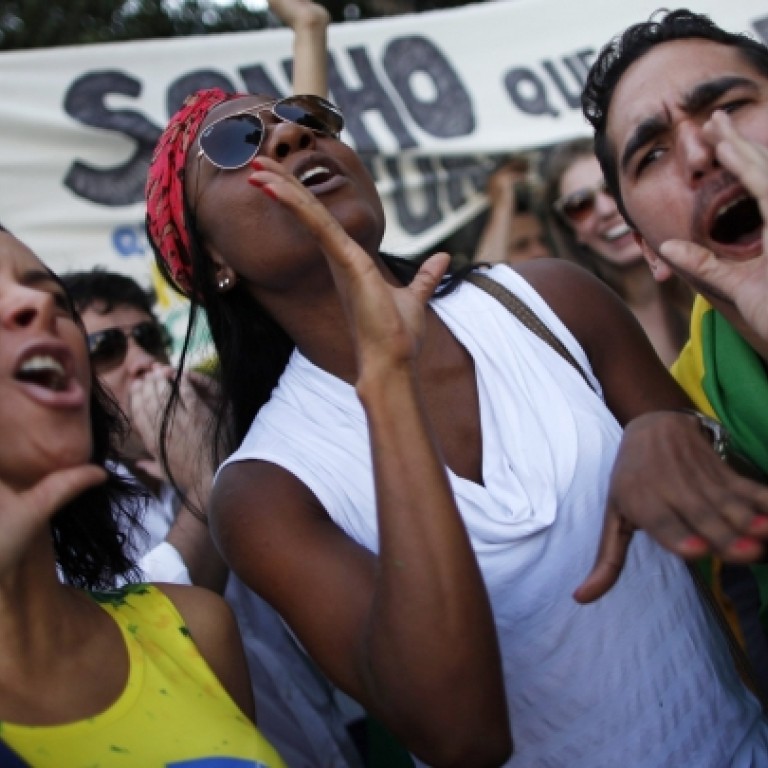
Brazil president Rousseff tries to appease protesters
President Dilma Rousseff sought to defuse a massive protest movement sweeping Brazil, acknowledging the need for better public services and more responsive governance.
She insisted on Tuesday - the day after more than 200,000 Brazilians marched in cities around the country - that her government remained committed to social change and was listening attentively to the many grievances expressed.
"Brazil woke up stronger today," she said in a televised speech in Brasilia. "The size of yesterday's demonstrations shows the energy of our democracy, the strength of the voice of the streets and the civility of our population." Monday's marches were the latest in a flurry of protests over the past two weeks that have fed on frustration with poor public services, police violence and government corruption.
The demonstrations started as small protests in a few cities against an increase in bus and subway fares. But they quickly ballooned into a national movement after police fired rubber bullets at protesters in Sao Paulo last week in clashes that injured more than 100 people.
Eager to ease tensions, officials in at least five cities, including state capitals Porto Alegre and Recife, announced plans on Tuesday to cut bus fares.
But demonstrations continued in a few cities, including Rio de Janeiro and Sao Paulo, where thousands gathered in front of the city's cathedral and marched on its main avenue in what protesters hoped would be a final push persuading local officials to cancel the bus fares rise.
Tuesday night's mostly peaceful demonstrations were marred by a small group of rioters who smashed the windows of Sao Paulo's city hall and then set fire to a police security post and a television transmission van.
The Justice Ministry said it would send federal troops to the cities hosting the two-week Fifa Confederations' Cup soccer tournament, which kicked off in Brazil on Saturday, to reinforce security.
Sao Paulo Mayor Fernando Haddad, a prominent figure in Rousseff's Workers' Party, said in a meeting with leaders of the protest movement on Tuesday that he is considering a cut in bus fares but needs to find ways to compensate for the loss in revenue.

